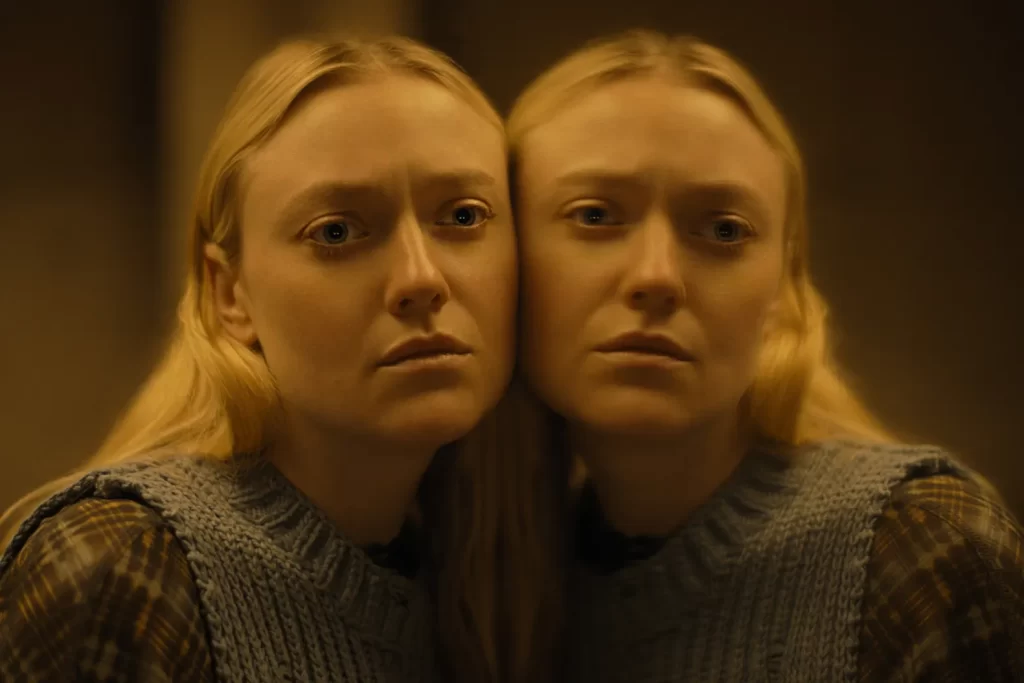
Think fast: Can you name a movie directed by someone with the surname Shyamalan where a handful of terrified survivors take shelter in primitive surroundings in the forest, bracing for an invasion of unseen monsters? If you guessed The Village, you’d be right, and also wrong. The Watchers, the debut feature from Ishana Night Shyamalan, conforms to a similar horror template as that 2004 tentpole, one of the most divisive (and best) pictures directed by her father, M. Night. It’s inevitable, in our era of toxic nepo-baby discourse, that the younger Shyamalan’s work will be measured against that of her sire (who serves as producer here), so there’s something admirable about her steering into the skid and inviting the comparison. In tone and style, The Watchers is a decidedly Shyamalan production, featuring a number of qualities—foreboding atmosphere, stiff dialogue, gripping images, hokey mythology—that inevitably evoke the filmmaker who was once infamously dubbed “the next Spielberg.”
It’s slightly disappointing, if hardly devastating, that The Watchers is a flawed movie, struggling to enliven its spooky premise with the requisite eccentricity or suspense. But it isn’t an ignoble effort, and it establishes Shyamalan as a director with a fine eye. She just isn’t always sure where to aim it.
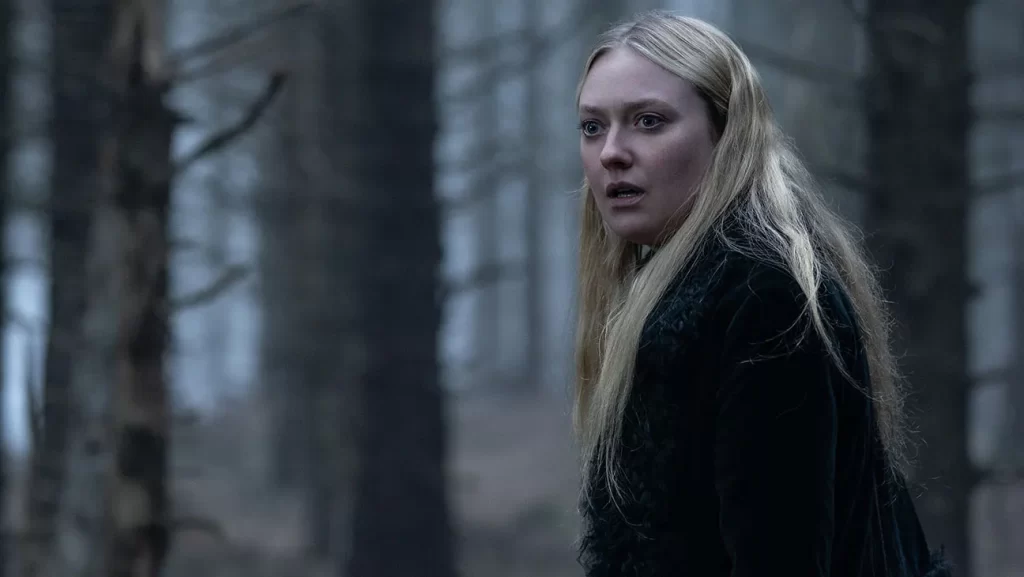
As a storyteller, Shyamalan proves efficient to the point of gracelessness. The hero of The Watchers is Mina (Dakota Fanning), an American expat living in Ireland and working at an aviary. Mina is a solitary sort, with a sullen demeanor that suggests a tragic past; if you had any doubt that she’s bereaved, it’s cleared up in the first 10 minutes, during which the script informs us—multiple times—that her mother died 15 years ago. Having briskly loaded this emotional baggage into view (her screenplay is based on a novel by A.M. Shine), Shyamalan gets down to business when Mina’s boss charges her with transporting a rare parakeet to a desolate location. (Before leaving the bird alone for a few hours, Mina tells it to “Try not to die,” advice it unhelpfully parrots back at her later on.) I’m sure it’ll be an uneventful trip.
The early sequence in which Mina warily guides her Suzuki into the woods illustrates what Shyamalan can do. Strictly speaking, nothing that happens is surprising; we know, based on the hectic prologue and the anticipatory music (the hauntingly beautiful score is by Abel Korzeniowski), that Mina will follow the path of Gretel and find herself lost. But Shyamalan’s staging—the threatening clouds, the shrieking crows, the way Mina’s car simply vanishes when she strays too far from the road—is elegant and unsettling. She brings you inside her dark fairy tale.
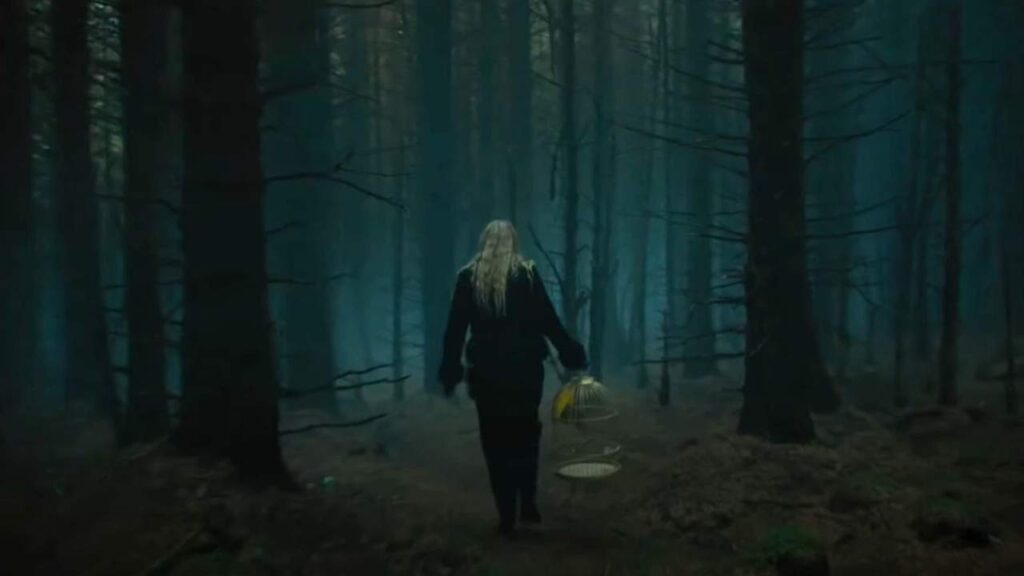
From here, The Watchers operates as an inverted haunted-house picture, where the house is the lone place of refuge. Chased by invisible beasts, Mina stumbles upon an isolated bungalow that’s occupied by three fellow wayward souls: a wise and wizened elder (Olwen Fouéré), a young woman searching for her missing husband (Barbarian’s Georgina Campbell), and a jittery teenager (Oliver Finnegan). The rules of their predicament, which we learn via Shyamalan’s blunt economy, are simple: Every night at sundown, they must present themselves in front of the structure’s large one-way mirror so that the titular creatures can observe them from the outside. And because the watchers patrol the forest and slaughter all who try to leave, there is no possibility of escape.
This setup is equal parts intriguing and ridiculous. That one of Mina’s companions alludes to a bucket doesn’t quite clear up matters of hygiene, while brief scenes of them hunting game only underline questions about how this makeshift quartet can subsist without any apparent source of drinking water. But Shyamalan isn’t concerned with plausibility, and her command of imagery helps you suspend your disbelief. There are a number of shots in The Watchers—a claustrophobic scene of two women hiding in a thicket, looking up as a gnarled hand extends down toward them; an aerial view of the cabin, its feeble light surrounded by a dark jungle that seems to stretch on forever; even the simple moment of Mina pressing against the mirror, her face doubly entombed—that carry an elemental beauty. Mina’s first night in “the coop,” in which she steps forward to the appreciative rustling of her captors—“What’s that sound?” “Applause!”—just might elicit cheers of your own.
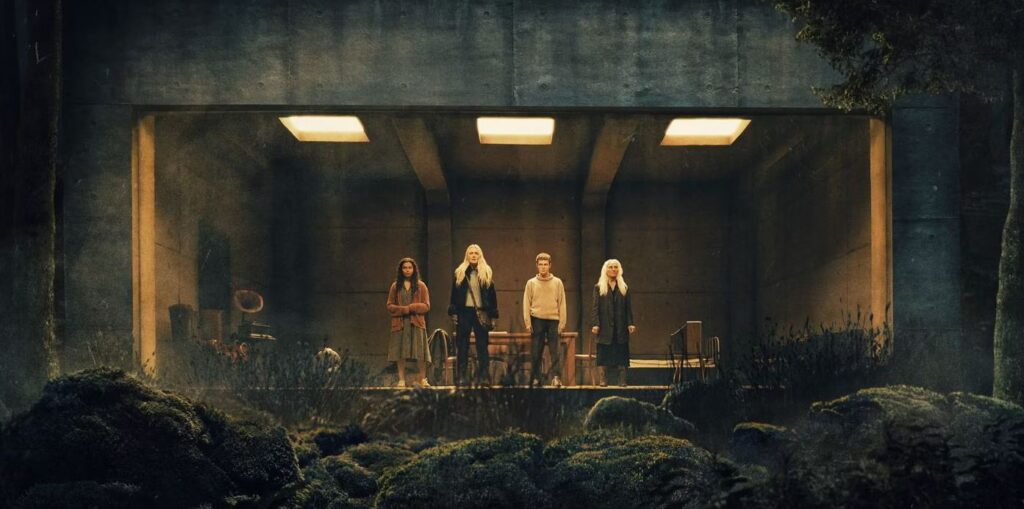
Unfortunately, as The Watchers progresses, its ambiance of doom slowly disintegrates. It is axiomatic that cinematic monsters are most terrifying when we can’t see them, which means that the obligatory reveal of the watchers’ appearance is a letdown; they end up looking about how you’d expect feral beasts in a horror movie to look, which means they’re barely scary at all.
Yet what really punctures The Watchers’ intensity is Shyamalan’s set pieces, which lack the necessary oomph. She knows how to craft a shot, but she fails to build tension or choreograph excitement, and her sequences of mayhem are banal rather than imaginative. Scenes of characters in frantic motion—they’re running for their lives!—are weirdly obvious and predictable, voiding them of any putative suspense.
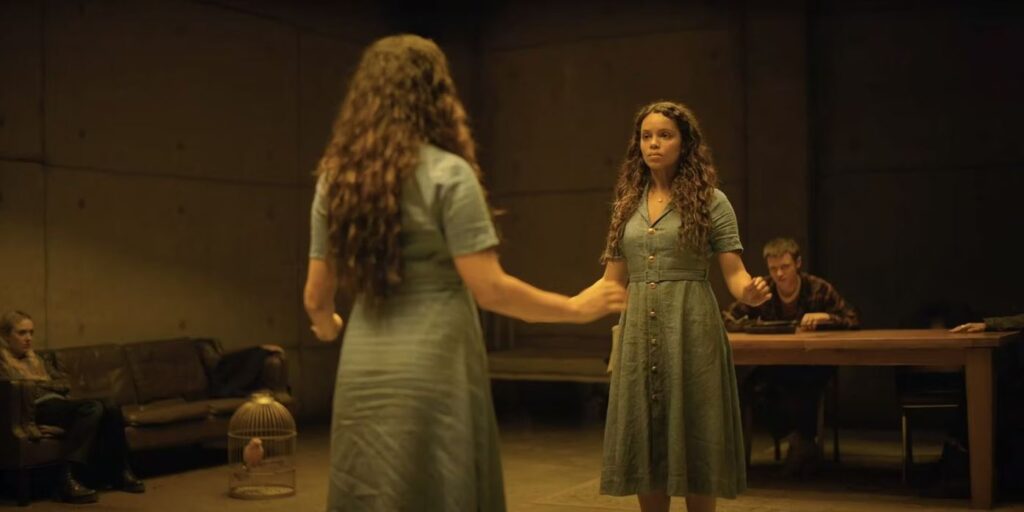
The flatness of The Watchers’ genre elements frees your mind to focus on its unsteady dialogue and its cockamamie story, which… OK, it isn’t good, exactly. We’ve been trained to expect the unexpected from a Shyamalan flick, so the late reveals here—involving amateur video footage, fantastical lore, and a university professor’s hilariously undisturbed office—are more silly than startling. But if Shyamalan has followed her father’s predilection for third-act rug-pulls, she has also inherited his disarming sincerity. The film’s final scenes aren’t especially gripping, but they are notable for their delicate tenderness.
The upshot is that The Watchers is a well-intentioned mess—alternately impressive and clumsy, touching and dopey. Shyamalan hasn’t made a very good movie, but she has demonstrated the skills of a director who knows how a good movie might be made. If her debut is underwhelming, it also strangely inspires confidence that in the future, she’ll deliver something worth watching.
Grade: C+
Jeremy Beck is the editor-in-chief of MovieManifesto. He watches more movies and television than he probably should.

Fantastic beat ! I would like to apprentice while you amend your web site, how could i subscribe for a blog site? The account helped me a acceptable deal. I had been a little bit acquainted of this your broadcast offered bright clear concept